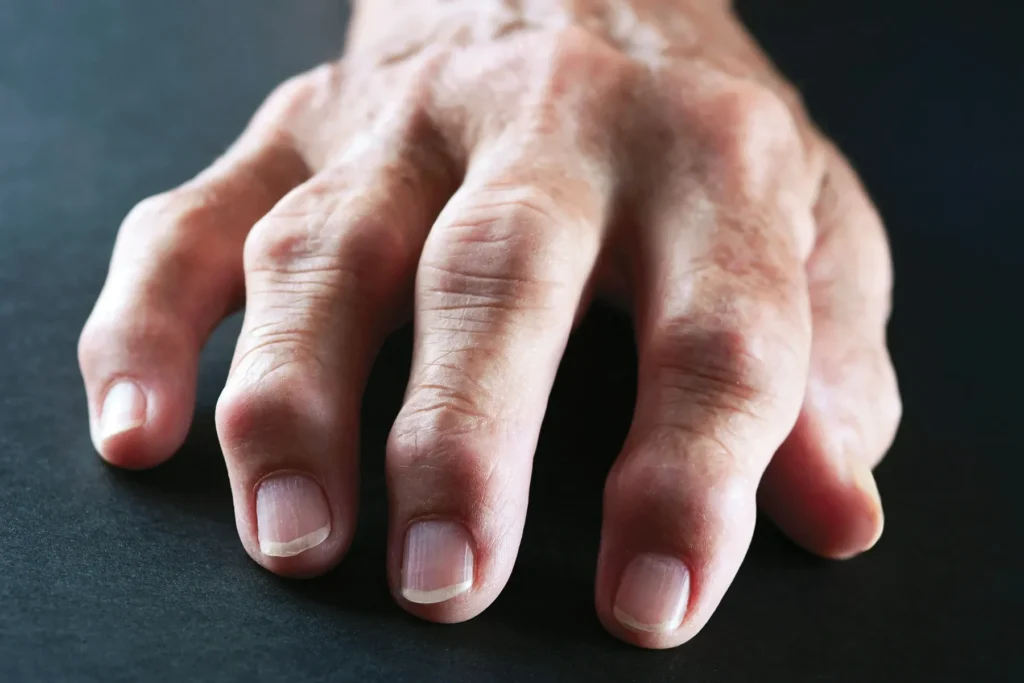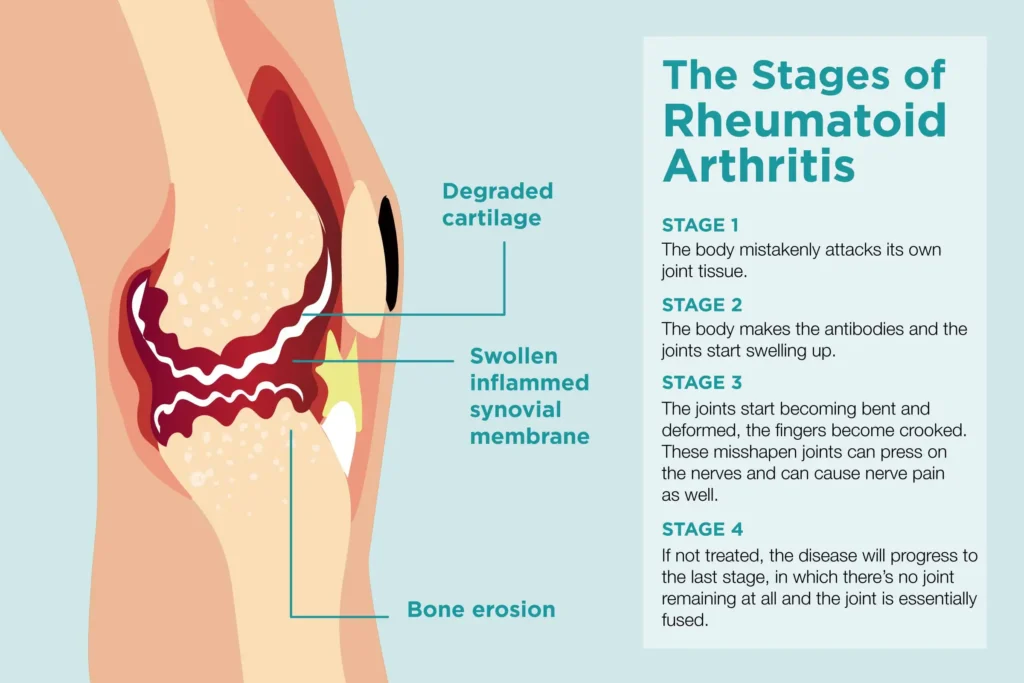Homeopathy For Arthritis
Homeopathic treatment for arthritis provides a comprehensive way to manage joint pain, stiffness, and inflammation. By emphasizing personalized care, it seeks to activate the body’s natural healing processes, which may help reduce symptoms and enhance mobility. Although some patients experience relief, there is still limited scientific evidence to back its effectiveness.
At Gupta Homoeo Clinic, we offer homeopathy for arthritis, helping individuals live a more comfortable life as we have over forty years of experience in homeopathy, delivering tailored treatments for a range of conditions, including arthritis. Our holistic method focuses on identifying the underlying causes of arthritis, taking into account individual symptoms and overall health. By exploring this page, you’ll learn more about arthritis, its causes, symptoms, and how our skilled doctors can help you manage and ease your condition like homeopathic remedies for arthritis in feet etc.
What is Rheumatoid Arthritis – Joint Pain?
Arthritis is one of the most common, yet most confusing conditions. As many people think that arthritis is a disease, it is actually an umbrella term for a wide variety of diseases that affect the joints. Another misconception is that arthritis only affects older adults. However, arthritis affects people of every age, gender and background. Homeopathic treatment for arthritis in knee is effective for people of all ages, from young adults to the elderly, providing relief from painful symptoms. Rheumatoid arthritis treatment homeopathic is one such solution, offering a natural approach to easing inflammation in the joints.
It is a joint disorder causing inflammation in one or more areas of the body where two different bones meet. The function of a joint is to help in the movement of body parts connected by it. So literally, homeopathy for arthritis means inflammation of one or more of such joints in the body, causing pain and stiffness. You can find solutions on your arthritis pain through our homeopathic doctor online consultation services.
How many types of arthritis exist?

There are more than 100 types of arthritis, but the most common ones include:
- Osteoarthritis: Osteoarthritis is often linked with natural aging, where an individual’s joints gradually wear down over time. An individual may have sustained earlier joint injuries or be overweight, which, in turn, adds more stress to the joints and pain. Whether you know the causes of your joint problems, it can help in understanding joint care and avoiding further osteoarthritis.
- Rheumatoid Arthritis: Rheumatoid arthritis homeopathy is often sought for inflammation and joint pain relief, helping patients manage their symptoms without harsh pharmaceutical treatments. It is an autoimmune disease in which the immune system mistakenly attacks healthy parts of the body, mainly joints, which leads to inflammation. If inflammation is not treated, inflammation can destroy joints.
- Psoriatic Arthritis: Psoriatic Arthritis is a condition that impacts skin and skeletal tissues. It causes inflammation and skin changes, or psoriasis, and discomfort in joints and other tissues around the joints. Homeopathy for psoriatic arthritis offers a natural way to reduce symptoms and improve quality of life.
Depending on what kind of arthritis one is suffering from, one can get Knee Arthritis Joint pain Treatment or even Homeopathy Treatment of Osteoarthritis Joint pain in knee done.
What are arthritis symptoms and signs?
Some of the most common signs and symptoms of arthritis include:
- Joint pain
- Stiffness
- Swelling
- Decrease in range of motion
- Redness of skin around joints
- People suffering from arthritis also notice that these pains are worse during the morning.
Some other effects and symptoms are:
- Feeling tired or fatigued
- Loss of appetite
- Decrease in red blood cell count leading to anemia
- Frequent fevers
People suffering from arthritis also notice that these pains are worse during the morning. For some, this can lead to fatigue, a decrease in red blood cell count, and frequent fevers. Homeopathic remedies for arthritis in fingers and homeopathic remedies for arthritis in hands can provide relief from these painful symptoms, helping you regain mobility.
What are the causes and risk factors of arthritis?
- Injury which can damage bone, ligament, and cartilage.
- Any kind of infection to the joint may result in arthritis.
- Obesity is a common cause of arthritis.
- Family history of arthritis also causes it.
- Overuse of knee joints can cause bursitis, which ultimately leads to intense pain.
- Sprain due to sudden unnatural movements causes pain as well as restriction of movement of the joint.
- Other causes include Sarcoidosis, Lupus, Kawasaki disease, bone tumors, bleeding disorders, etc.
A decrease in the usual amount of cartilage can cause some forms of arthritis. Homeopathic treatment for arthritis in knee and other affected areas can help manage the pain associated with these risk factors, ensuring your joints stay functional for years to come.
How to diagnose arthritis?
The initial diagnosis includes consulting a doctor, who may suggest tests to understand the underlying condition causing pain. Depending on the diagnosis, permanent cure for rheumatoid arthritis in homeopathy might be considered as part of a long-term treatment plan.
Lab tests
These will include the testing of bodily fluids like blood, urine, and joint fluid. The analysis of these different fluids will pinpoint the type of arthritis you may have.
Imaging
These tests will help detect the problems in your joints leading to the specific symptoms you are suffering from. These tests include:
- X-rays: Though this may not reveal the arthritic damage in the early stages, they can be used to track the progression of the diseases.
- CT Scans: These can show visualization of the bone as well as the surrounding soft tissues.
- MRI: An in-depth cross-sectional image of the tissues like cartilage, tendons, and ligaments can be produced.
- Ultrasound: This will help guide needle placement for joint aspirations and injections.
What should one eat and not eat in arthritis?
Weight loss reduces the risk of arthritis and, in case one has already been diagnosed with it, it would provide some relief from the pain. For weight loss, one also needs to eat healthily.
Include the following in your diet:
- Fresh fruits
- Vegetables
- Herbs
- Fish
- Nuts
- A gluten-free diet would help improve the symptoms and even the progression of the disease.
Gout is a type of metabolic arthritis, triggered by dietary choices. High-purine foods, such as red meats and shellfish, can trigger a flare. Alcoholic beverages, particularly beer, and anything with high fructose (including soft drinks with corn syrup) can raise uric acid levels and increase severity of symptoms. Foods that are high in gluten, such as wheat, barley, and rye can aggravate joint pain for celiac disease patients. With mindful dietary choices, many people that have gout will be able to manage their symptoms and improve their overall joint health. Avoid the following food items:
- Fried foods
- Processed foods
- Dairy products
- Meat
Homoeopathy for arthritis in feet can also be complemented with dietary changes for better results.
How to avoid or reduce the pain of Arthritis?

A well-balanced nutrition and diet will help manage the disease in a proper way.A healthy lifestyle also plays an important role in managing arthritis.Daily exercise is a basic lifestyle measure. Beneficial exercise may improve the mobility of joints.
Try using shoe insoles, knee braces, and other walking aids to reduce stress on your joints.Control your weight; if you are overweight, try to lose weight.Leading a stress-free life can reduce the severity and progression of disease.
Simple hot and cold treatments can give relief in arthritis pain. Long, warm showers or baths help ease stiffness in your joints. Use a heating pad at night to keep your joints loose. Incorporating homeopathy for arthritis into your lifestyle, alongside physical therapy and other home treatments, can significantly reduce joint discomfort.
Do’s & Don’ts
Do’s
- Engage in Low-Impact Exercise: Activities such as walking or swimming can help you keep your joints flexible and strong.
- Maintain a Healthy Weight: Shedding extra pounds can reduce stress on your joints, leading to less pain and better mobility.
- Prioritize Quality Sleep: Strive for 7–9 hours of good sleep each night to help lower inflammation and ease joint discomfort.
- Practice Good Posture: Keeping your body aligned properly can lessen strain on your joints and support your overall musculoskeletal health.
- Incorporate Anti-Inflammatory Foods: Adding foods rich in omega-3s, like fish and flaxseeds, can help fight inflammation.
- Manage Stress Effectively: Techniques like meditation can be beneficial in controlling pain and improving your overall well-being.
- Regularly Consult Healthcare Providers: Regular check-ups are important for managing your health and adjusting treatment plans as needed.
Don’ts
- Avoid High-Impact Activities: Stay away from exercises like running that could worsen joint damage.
- Don’t Smoke: Smoking can heighten inflammation and aggravate arthritis symptoms.
- Limit Alcohol Consumption: Drinking too much alcohol can interfere with your medications and increase inflammation.
- Don’t Ignore Persistent Pain: If you’re experiencing consistent or severe pain, it’s important to see a healthcare professional.
- Avoid Overexertion: Pushing through intense pain can lead to flare-ups and further joint damage.
- Steer Clear of Processed Foods: Foods that are high in sugar and unhealthy fats can trigger inflammation.
- Don’t Discontinue Medications Abruptly: Always talk to your doctor before making any changes to your treatment plan.
Is Homeopathic treatment helpful for arthritis?
To avoid side effects, it is recommended to take homeopathy for arthritis. Of course, when doing some research and trying to find out the best cure for arthritis of any kind, one would think of or come across homeopathy too. With a focus on individualized care like, homeopathic remedy for arthritis swelling and homeopathic treatment for arthritis in knee can offer relief without the side effects associated with traditional medications.
Some of the benefits of consulting a nearby homeopathy doctor for Psoriatic or any kind of other arthritis treatment include:
- It uses a holistic approach based on individual diagnosis and symptoms.
- One of the only known treatments under which complete health can be regained by removal of all signs and symptoms.
- It addresses the underlying cause and individual symptoms.
- Several options for medication available based on the cause, location, sensation, modalities, and extension of the complaints.

Dr. Sachin Gupta
Homoeopathic Physician MD(Hom.)
Renowned homeopathic physician and skin specialist in Jaipur, dedicated to providing personalized, effective treatments.

Dr. Saveena Gupta
Homoeopathic Physician BHMS, DNHE
Highly regarded homeopathic doctor in Jaipur, specializing in women’s health and gynecological disorders.
Homeopathic remedies for arthritis :
Some important remedies are given below for the homeopathic treatment of arthritis:
- Bryonia Alba: Pain with inflammation that is aggravated by movement and relieved by moderate pressure and rest.
- Rhus Tox: Rhus Tox is one of the best Homeopathic medicines for treating rheumatoid arthritis. It proves helpful in rheumatoid arthritis involving any of the joints. Pain is aggravated by the first movement, damp weather, and better by continuous motion.
- Caulophyllum: It is a most effective Homeopathic medicine for rheumatoid arthritis affecting small joints that are both stiff and painful. Joints of fingers, wrists, ankles, and toes are affected.
- Calcarea Carb: Arthritic swelling, knee pain especially in fleshy people, worse by cold.
- Remarkable remedy for rheumatoid arthritis has outstanding action over nerve pain.
Note: Please do consult with your doctor first, before taking any medicine. The remedies mentioned here are for information only. We do not recommend taking any medicine without prior consultation. Homeopathy treatments for any diseases and treatments vary according to your body symptoms and structure.
To know the best Homeopathic Medicine for knee pain in Homeopathy or any other kind of joint pain, one must consult a doctor before taking any kind of medication. Thanks to technology, one can get a consultation online as well. So your worries about arthritis can be put at bay right away. Most of your worries and queries like What Causes Arthritis, How to get arthritis joint pain relief, and Arthritis Best Medicine for knee pain or any joint pain in Homeopathy can and will be answered by undertaking a consultation and then following it up with a recommended recovery path. Receive arthritis care from the best homeo doctor specializing in natural remedies.
Read more about homeopathic treatment for fungal skin infection.
Disclaimer
The information shared about homeopathy for arthritis here is meant for general educational purposes only and should not be taken as medical advice, diagnosis, or treatment. Arthritis includes a range of conditions that have different causes, symptoms, and treatment methods. It’s crucial to talk to a qualified healthcare professional for medical advice that is tailored to your individual needs. Never ignore professional medical advice or postpone seeking it based on the information provided here. Always consult your doctor or another qualified health provider if you have any questions about a medical issue. Relying on the information in this content is entirely at your own risk.
Frequently Asked Questions (FAQs) About Arthritis
Q2. Can homeopathy cure rheumatoid arthritis?
Answer – While there is no scientific proof that homeopathy can effectively treat rheumatoid arthritis (RA), some patients do claim to experience relief from their symptoms. It’s important to view homeopathy as a complementary option rather than a primary treatment. Always seek advice from your healthcare provider to ensure you receive comprehensive care.
Q3. Does cracking knuckles cause arthritis?
Answer – Cracking your knuckles doesn’t lead to arthritis. The noise you hear comes from gas bubbles in the joints, and it’s usually harmless.
Q4. Can weather changes affect arthritis symptoms?
Answer – Some people say they experience more joint pain when the weather changes, but the scientific evidence on this is not clear. While factors like barometric pressure might have an effect, further research is necessary to understand the connection better.
Q5. How is arthritis diagnosed?
Answer – Diagnosis typically includes several components:
- A thorough review of the patient’s medical history and a physical examination.
- Imaging tests, such as X-rays, MRIs, or ultrasounds, to evaluate any joint damage.
- Laboratory tests aimed at identifying specific types of arthritis, including blood tests for rheumatoid factor or uric acid levels.